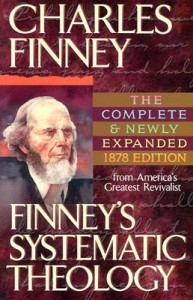 Charles Finney explains in his Systematic Theology that there are different classes of truth, and that often Christians confuse them. I’ll begin with a statement he makes about the Bible that I believe is illuminating, then go on to his concern over how Christians communicate truth:
Charles Finney explains in his Systematic Theology that there are different classes of truth, and that often Christians confuse them. I’ll begin with a statement he makes about the Bible that I believe is illuminating, then go on to his concern over how Christians communicate truth:
The Bible is not of itself, strictly and properly a revelation to man. It is, properly speaking, rather a history of revelations formerly made to certain men. To be a revelation to us, its truths must be brought by the Holy Spirit within the field of spiritual vision. This is the condition of our either knowing or properly believing the truths of revelation. . . .
I am fully convinced that much of the inefficiency of religious teachers is owing to the fact that they do not sufficiently study and comply with the laws of knowledge and belief to carry conviction to the minds of their hearers. They seem not to have considered the different classes of truths, and how the mind comes to possess a knowledge or belief of them.
Consequently, they either spend time in worse than useless efforts to prove first or self-evident truths, or expect truths susceptible of demonstration to be received and rested in without such demonstration. They often make little or no distinction between the different classes of truths, and seldom or never call the attention of their hearers to this distinction. Consequently, they confuse and often confound their hearers by gross violations of all the laws of logic, knowledge, and belief.
I have often been pained and even agonized at the faultiness of religious teachers in this respect. Study to show yourselves approved, workmen that need not be ashamed, and able to commend yourselves to every man’s conscience in the sight of God.
